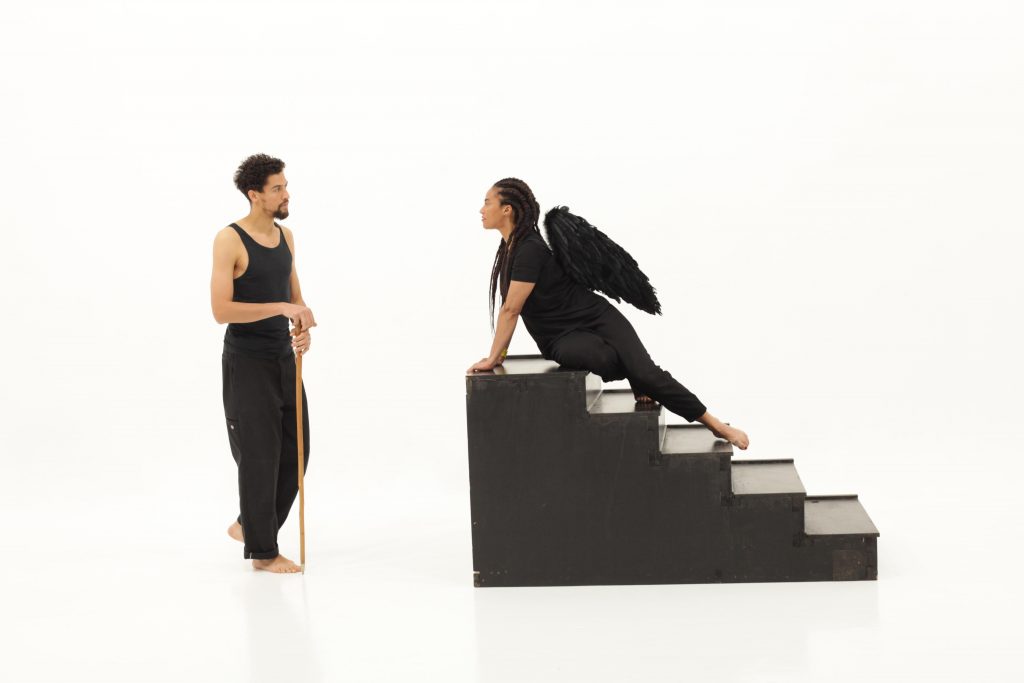Art World
Art-World Luminaries Sign an Open Letter Condemning Portugal’s ‘Misogynistic and Racist’ Rejection of Grada Kilomba’s Venice Proposal
The letter decries comments made by a single juror who torpedoed the artist's proposal.

The letter decries comments made by a single juror who torpedoed the artist's proposal.

Amah-Rose Abrams

Art world luminaries have signed an open letter in support of Portuguese artist Grada Kilomba and curator Bruno Leitão after the curator spoke out in his own open letter against the judging process that rejected their proposal for the Portuguese pavilion at the 2022 Venice Biennale.
Their proposed exhibition titled “A Ferida/The Wound” explores racism and Portugal’s colonial legacy, while tackling the climate crisis, human rights, and the increasing “militarization” of human relations. The jury appointed by the Portuguese ministry of culture scored the project highly, awarding points of 19/20 and 20/20 across the board but the overall success of the proposal was tanked by the scores awarded by the judge Nuno Crespo, who gave it 10/20, 10/20, and 15/20 in the three categories they were judging.
Justifying his low scores, Crespo, who is an art critic and the director of the School of Arts at the Catholic University of Portugal, said that “the idea of racism as an open wound has already been the subject of countless other approaches; the proposal presented does not let you understand how in an exhibition you can review, criticize or prolong this idea, already discussed and even exhibited in multiple ways.” While Crespo praised Kilomba’s intellectual talent and rigor, his conflictingly low score suggests a tactical sabotage to prevent the project going forward in the selection process.
The latest open letter, which was published in the online journal Contemporary&, denounces the decision, which thwarted Leitão and Kilomba from becoming the first Black team to represent Portugal at the prestigious international exhibition in Venice. It points out the racial make up of the jury, which is all white, and demands that going forward, the committee appointed to select the national representatives for Portugal reflect “the multiracial diversity of the Portuguese population.” Decrying that the judging system is flawed to allow one juror to influence the collective decision, it continued:
“We want to declare our unconditional solidarity with the artist Grada Kilomba, who has been eliminated so far in the still ongoing process of representing Portugal at the Venice Biennale 2022, through a crude, ignorant, misogynistic and racist evaluation of her work and of the artist herself, enabled by a governmental agency incapable of recognizing and preventing misconduct.
We support the hierarchical appeal submitted by the curator Bruno Leitão and demand a review of the evaluation of this contest that is fair, reasoned and transparent”
Kilomba is represented by the South African Goodman Gallery, which told Artnet News that the artist is standing back to let Leitão’s original open letter—which accused the ministry of culture of violating its duty, calling the jury “completely out of touch with reality and dismissive of art,” and asked for the jury to reconsider its decision—speak for itself.
The letter is signed by 114 people including members of the art world in Portugal as well as a long list of international supporters including Anselm Frank, head of visual arts at Haus der Kulturen der Welt Berlin; Kader Attia, artist and curator of the upcoming Berlin Biennale; South African Berlin-based artist Candice Breitz; Tate Modern senior curator Catherine Wood and assistant curator Tamsin Hong; director of the Amant Foundation where Kilomba is currently exhibiting, Ruth Estévez; Shermin Langhoff, artistic director at the Maxim Gorki Theatre in Berlin; and John Romão, artistic director at the Biennial of Contemporary Art (BoCa) in Lisbon.